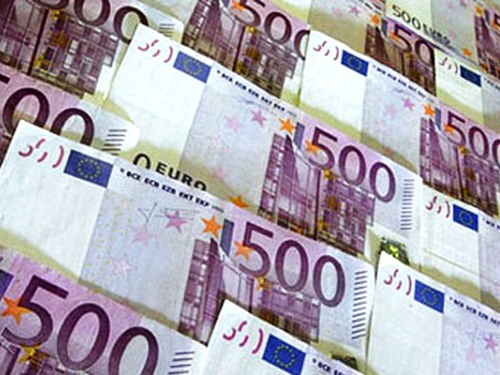Poland and Germany were both initiators and drivers of a New Eastern policy linked to the Eastern neighborhood and Russia/Soviet Union.
Andrei Yahorau: The official Minsk today is mostly interested in European money

However, without fulfilling political obligations Belarusan authorities shouldn’t count neither on serious level of economic cooperation with the EU nor on large investments.
Andrejs Pildegovičs, the state secretary for Foreign Affairs of Latvia, brought to Minsk the rhetoric of warmer relations and willingness to see Belarus’ representation at the Eastern Partnership Summit in Riga at the highest level, i.e. the possibility of Alexander Lukashenko’s presence at the Summit.
However, to visit Riga Lukashenko will have to release political prisoners, which he is unlikely to do, all the more that there are no hindrances for the Belarusan Foreign Minister to visit Latvia.
New signals that the European Union sends to the official Minsk, scenarios of the EaP’s reformation, the opportunities of simplification of Belarus-EU visa regime Andrei Yahorau, the head of the Centre for European Transformation, told in the interview with the EuroBelarus Information Service.
— Andrejs Pildegovičs, the state secretary for Foreign Affairs of Latvia, announced in Minsk that Latvia would like to see Belarus represented at the highest level at the EaP Summit in Riga in May 2015. What signal does Brussels send to the official Minsk?
— We shouldn’t look for some special signals. With the general improvement of Belarus-EU relations and the sides’ aiming at the dialog the diplomatic rhetoric is also “warming” recently. But the existing problems don’t disappear, as the entrance sanctions are still functioning, i.e. only those who are not included in the “lists” of sanctions can travel to Europe.
— The Summit in Riga is going to revise the Eastern Partnership. Belarusan authorities don’t hurry to enter the EU, but also don’t refuse cooperation with it on “pragmatic issues”. What appeals the official Minsk in the EU?
— For now I don’t see that the Eastern Partnership is undergoing some serious revision; the EU rather perceives the division of the EaP into two blocks as a fact. So it tries to find the so-called “pragmatic” forms of cooperation with the troublesome neighbors, i.e. those spheres where cooperation without political conditions and discussions on human rights is possible, i.e. the questions that are acceptable and interesting for the Belarusan authorities.
And today Minsk is mostly interested in European money: access to investment resources and EU financial instruments, development of trade with the EU, projects of technical cooperation, grants for the infrastructure projects. Some things from this list can be achieved without fulfillment of political conditions; however, Belarusan authorities shouldn’t count on the serious level and big investments without it.
— The diplomat emphasized that Lukashenko’s invitation to the Summit in Riga depends on the following actions of the Belarusan authorities. By this he meant the president election campaign, didn’t he?
— Now there are two main conditions on the agenda: the political prisoners and bigger freedom of the election process.
— Which role in Belarus-Europe relations is attested to the release of political prisoners, which used to be a priority, but is no longer among the main claims of the EU?
— Well, the EU hasn’t rejected this claim; however, if earlier it concerned the renovation of the diplomatic dialog, now it enables the start of real EU’s aid. Let’s agree that talking about EU loans and getting loans are two different things.
— What the official Minsk should do in order to get Lukashenko to the Summit in Riga? And is he willing to do that himself?
— If we talk about Lukashenko, he should release political prisoners. But to participate at the level of the Foreign Minister the official Minsk can do nothing, and it is most likely to do nothing.
— The EU no longer connects the release of the political prisoners with simplification of visa procedures. What the official Minsk is to do in order to simplify the visa regime? What are the chances for simplification of this regime in the near future?
— This question was initially withdrawn from any political conditions. Negotiations on simplification of visa procedures were suggested as early as in 2011 without the term of releasing political prisoners. Belarusan authorities accepted this offer in November 2013 and started negotiations. Now they will soon be finished, and we can assume that the agreement will be signed at the Summit in May.
Others
-
Uladzimir Matskevich: The sooner the "Union State" is denounced, the better for Belarus
Not only does the “Union State” undermine the establishment of civilized relations with Europe, but it hinders the possibility of normal relations between Belarus and Russia.
-
Uladzimir Matskevich: The regime can no longer control the situation in the country
The authorities are unable to prolong the social contract with the people: there is no way out of the social crisis.
-
Press release of the BNP in connection with the next round of the dialogue in the format of the EU-Belarus Coordination Group
Belarusan National Platform of the Eastern Partnership Civil Society Forum welcomes the dialogue process in the format of the EU-Belarus Coordination Group, the third round of which was held in Minsk on 3-4 April 2017.
-
Hennadiy Maksak: Europe must react adequately to the events in Minsk
A new wave of political repressions should make the EU return to tougher policy towards the Belarusan regime.








Comments
From farewell to a new Eastern policy and towards a new development
Poland and Germany were both initiators and drivers of a New Eastern policy linked to the Eastern neighborhood and Russia/Soviet Union.